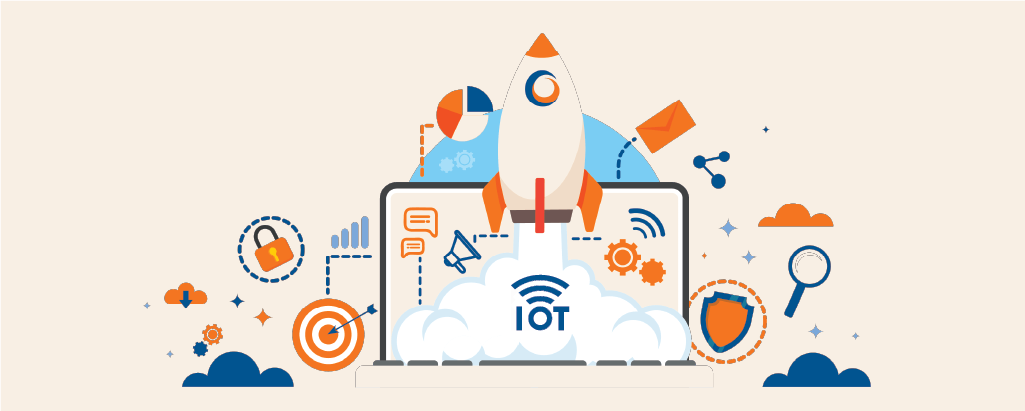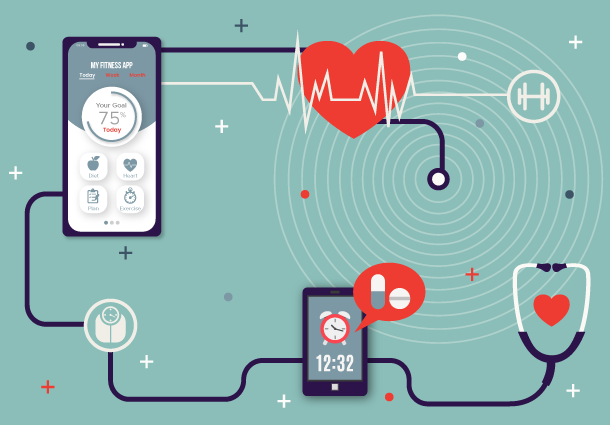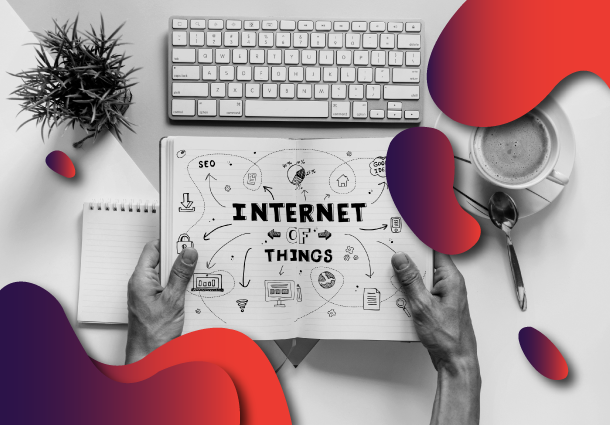Code to Commerce: IoT’s Impact on Business Ecosystems
The world is changing quickly, and technological developments are largely to blame for how we live and work today. The Internet of Things (IoT), a phenomena that has already started to change the digital world and is poised to exert considerably more impact in the future, is one of the most revolutionary forces at play. The future of IoT development is at the vanguard of innovation in this era of linked devices and intelligent systems, offering a future that is smarter, more effective, and profoundly integrated.
In essence, the Internet of Things (IoT) is the process of connecting common objects and equipment to the internet so they can trade and gather data. Previously inert things can now become intelligent, capable of exchanging information and responding to external stimuli on their own thanks to connectedness. 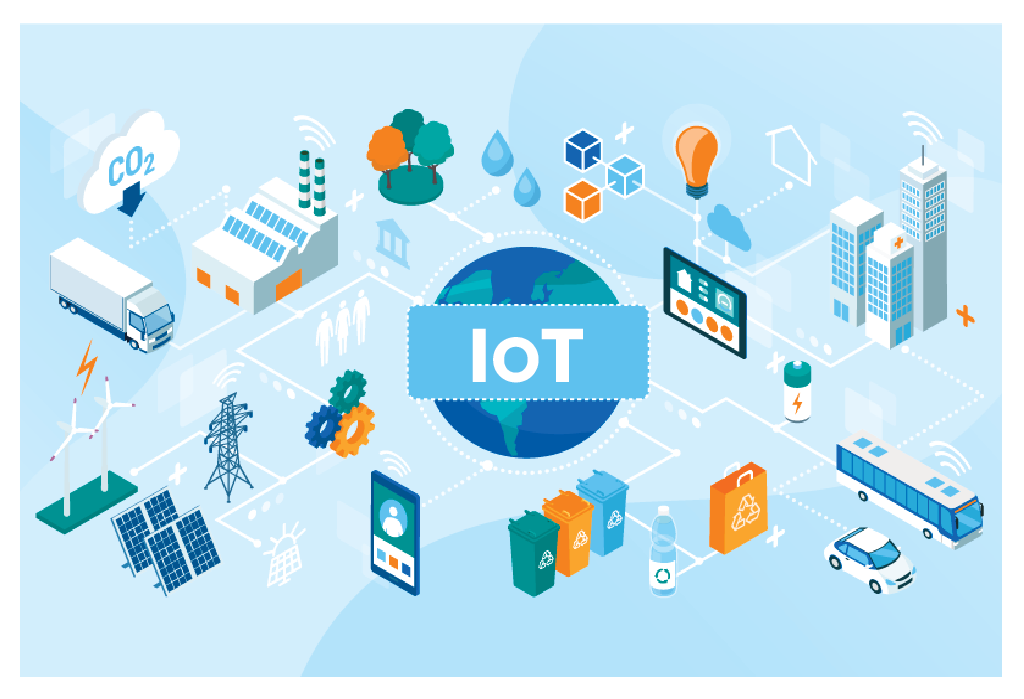 The Internet of Things is altering businesses across the board, from smart homes that can anticipate human needs to industrial systems that optimize production in real time.
The Internet of Things is altering businesses across the board, from smart homes that can anticipate human needs to industrial systems that optimize production in real time.
It’s crucial to investigate the new trends and forecasts that are expected to shape the course of IoT development as we set out on this exciting adventure into the future. The fundamental elements influencing the IoT landscape, from the convergence of 5G and edge computing to the emergence of AI-driven IoT applications, will be covered in detail in this blog. In order to shed light on the significant changes that the Internet of Things is bringing to our daily lives and the world’s industries, we will also examine the implications of IoT for a number of areas, including healthcare, transportation, and smart cities. Come along with us where the physical and digital worlds collide, where possibilities are seemingly endless, and where the future of the internet of things is being shaped by lines of code and streams of data. We’re glad you’re here to read “IoT Development in the Future: Trends and Predictions.”
The Quantum Leap of IoT: Where Bytes Meet Brilliance
The Internet of Things (IoT) has quickly evolved from a futuristic idea to a crucial component of our everyday lives and businesses. According to the most recent research, IoT is booming and its impact is expanding across numerous industries. IoT devices are widely used in smart homes, particularly in the consumer space. IoT has improved the comfort and energy-efficiency of homes with anything from voice-activated assistants that can control our lighting to thermostats that remember our preferences. Smartwatches and fitness trackers are two examples of ubiquitous wearable IoT devices that monitor our everyday activities and health. The significance of IoT, however, goes well beyond the home. Healthcare is one industry that has adopted IoT for telemedicine and remote patient monitoring, increasing patient outcomes and lowering healthcare expenses. Drones and IoT sensors are improving crop management in agriculture, resulting in higher yields and sustainability. 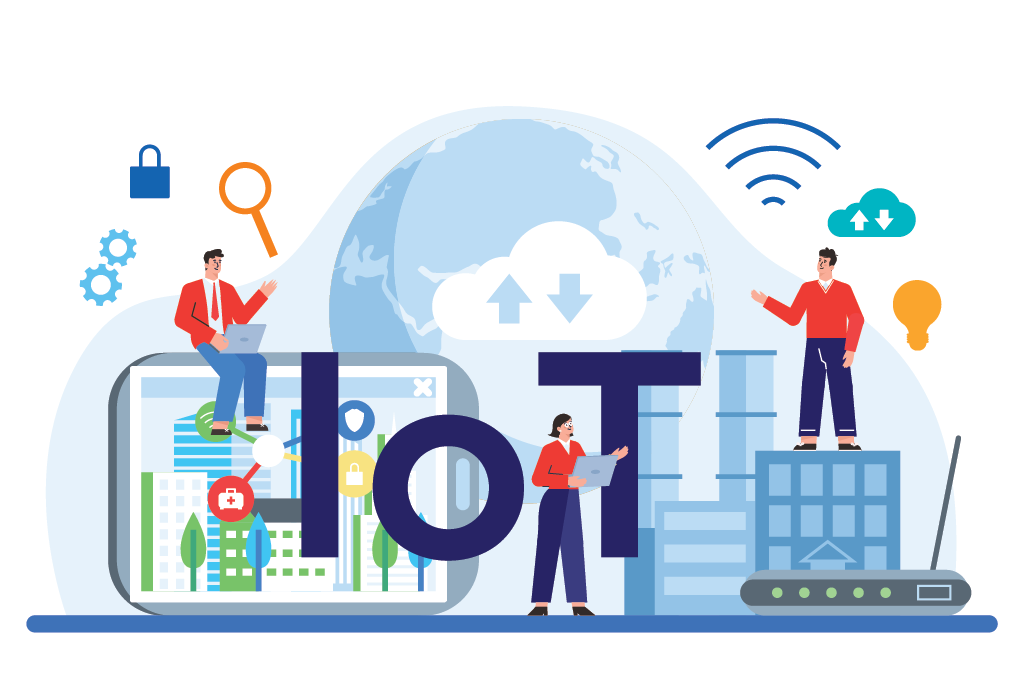 Through connected vehicles and intelligent traffic control systems, IoT is transforming transportation, improving safety and easing congestion. Real-time tracking and monitoring help with inventory control and delivery efficiency in logistics and supply chain management.
Through connected vehicles and intelligent traffic control systems, IoT is transforming transportation, improving safety and easing congestion. Real-time tracking and monitoring help with inventory control and delivery efficiency in logistics and supply chain management.
Additionally, IoT is a foundational component of global smart city programs. Cities are using IoT sensors to manage garbage, manage traffic, and monitor the environment, making cities more sustainable and habitable. The IoT picture is optimistic, but there are still issues like data security and privacy worries. Taking care of these problems becomes more important as more gadgets connect to the internet. To facilitate seamless communication between various IoT devices, interoperability standards must also be defined. The current status of IoT is characterized by rapid growth and widespread acceptance across a wide range of domains. Its transformational promise is apparent, promising that iot is the future in which connectivity and data-driven insights improve our quality of life and boost industry efficiency. As IoT evolves, its impact will grow more profound and far-reaching.
Edge Computing’s Ascendance: IoT’s Next Frontier
As we approach 2023, the Internet of Things (IoT) will experience enormous alterations, bringing in a wave of innovation and disruption across multiple areas. The integration of 5G networks, which promises lightning-fast, low-latency connectivity, is one of the most prominent advances in IoT development. This breakthrough will be critical in realizing the full potential of IoT applications, particularly in areas such as autonomous vehicles, augmented reality, and remote medical treatments. Another important trend is the rise of edge computing. IoT devices are increasingly depending on local processing of data rather than transferring it to distant cloud servers. This method not only reduces latency but also improves security and allows for faster decision-making in IoT devices, making it a key fixture in the IoT landscape.
Furthermore, the relationship between IoT and artificial intelligence (AI) and machine learning (ML) is becoming clearer. IoT devices are transforming into sophisticated systems capable of analyzing local data. This combination of AI and ML will result in IoT systems that can not only gather and transmit data but also make context-aware judgments, changing IoT application capabilities. In the development of IoT, security is still a key focus. 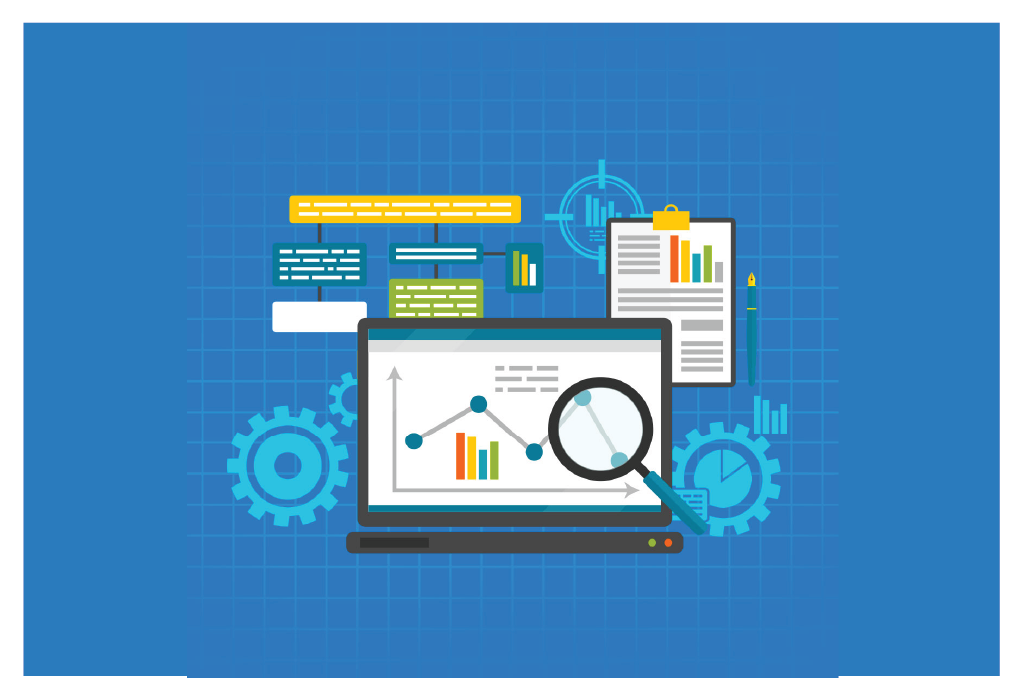 As the number of connected devices grows, strong security measures such as encryption, authentication, and comprehensive device management will be required to safeguard sensitive data and thwart cyber threats.
As the number of connected devices grows, strong security measures such as encryption, authentication, and comprehensive device management will be required to safeguard sensitive data and thwart cyber threats.
IoT is expected to have a significant impact in industries such as healthcare. IoT will be widely used in healthcare, with applications ranging from remote patient monitoring to telemedicine and wearable health gadgets. These technologies will improve patient care while also lowering healthcare expenses and improving diagnostics and treatment. The Internet of Things’ involvement in sustainability activities will continue to grow, with smart agriculture optimizing resource utilization, smart grids enhancing energy efficiency, and environmental monitoring giving real-time data to battle climate change.
IoT solutions will hasten the development of smart cities. Urban planners will use IoT data to improve energy use, trash management, traffic management, and public safety, making cities more effective and livable. IoT will support automation and proactive maintenance in the industrial sector. IoT sensors and data analytics will be more and more used by manufacturers to streamline operations, cut downtime, and enhance product quality.
Towards a Connected Future: The Evolution of IoT
The IoT industry’s future is an enthralling one, with boundless potential and significant technological developments. Looking out into the distance, we can see a number of significant patterns and trajectories that provide a preview of what lies ahead for the IoT. The continuing development of 5G networks is one of the key factors influencing the future of IoT. The next generation of Internet of Things applications will be supported by 5G networks because of their extremely fast speeds and low latency. This enables real-time decision-making and promotes the rise of IoT in industries like autonomous vehicles, healthcare, and smart cities. 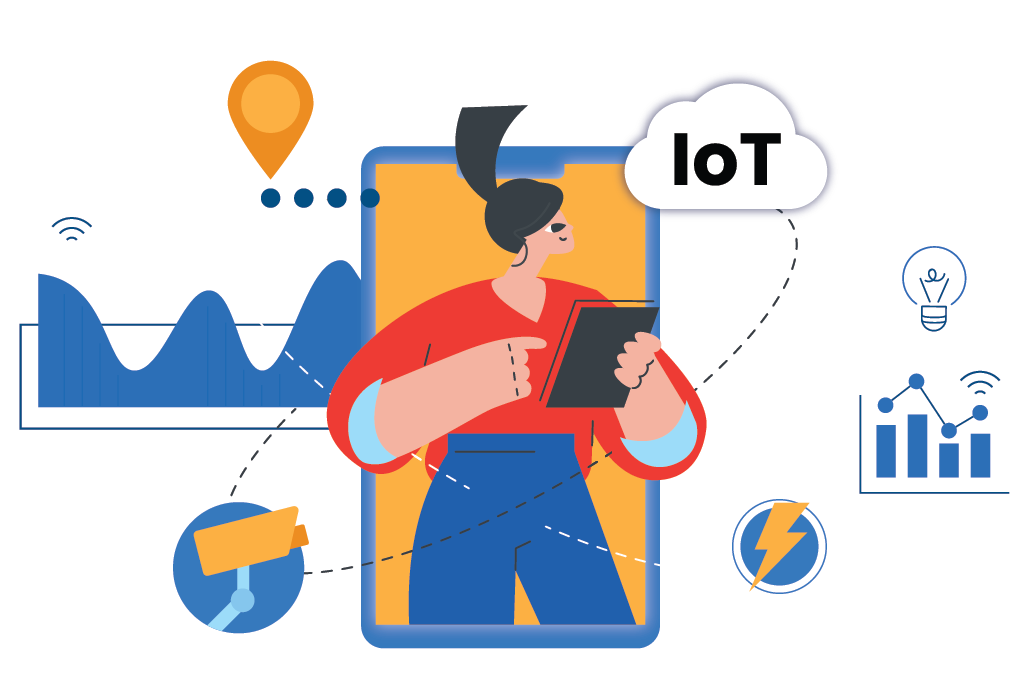 It also means faster and more dependable data transfer.
It also means faster and more dependable data transfer.
The future development of iot will continue to be heavily reliant on edge computing. Edge computing improves response times and minimizes latency by processing data more nearby its source. As a result, IoT devices will be able to analyze data in real-time and make decisions on their own, opening up new opportunities for consumer electronics, industrial automation, and robotics. The possibilities of IoT will be further enhanced by machine learning (ML) and artificial intelligence (AI). The Internet of Things (IoT) will develop into intelligent entities that can adapt to shifting environments and make data-driven decisions independently of cloud-based processing. Through this convergence, several industries will experience more effective energy use, improved predictive maintenance, and sophisticated automation.
IoT’s Future Today: Pattem Digital Leading the Way
The IoT development terrain is always changing, and the future promises a lot of promise and possibilities. The IoT ecosystem is set for revolutionary improvements as we embrace the convergence of cutting-edge technologies like 5G, edge computing, AI, and sustainability initiatives. These innovations are expected to transform industries, enhance our everyday lives, and tackle some of the most important global problems. The Internet of Things (IoT) promises improved security, decreased environmental impact, and more intelligent decision-making in addition to increased convenience and efficiency. The potential for innovation and positive change is limitless, from the inclusion of AI in commonplace products to the growth of IoT in industries like healthcare, smart cities, and manufacturing.
It’s critical to pick the best partners and specialists who can successfully traverse the challenges of IoT development in this world of limitless possibilities. Pattem Digital steps in to help with it. Pattem Digital stands out as a top option for companies and organizations wishing to utilize the full potential of IoT in the future thanks to its dedication to innovation, extensive IoT knowledge, and track record of delivering cutting-edge solutions. In a world where technology is influencing the future, Pattem Digital is your dependable IoT app development company, assisting you in utilizing the limitless potential of IoT and laying the foundation for a tomorrow that is smarter, more connected, and sustainable.
